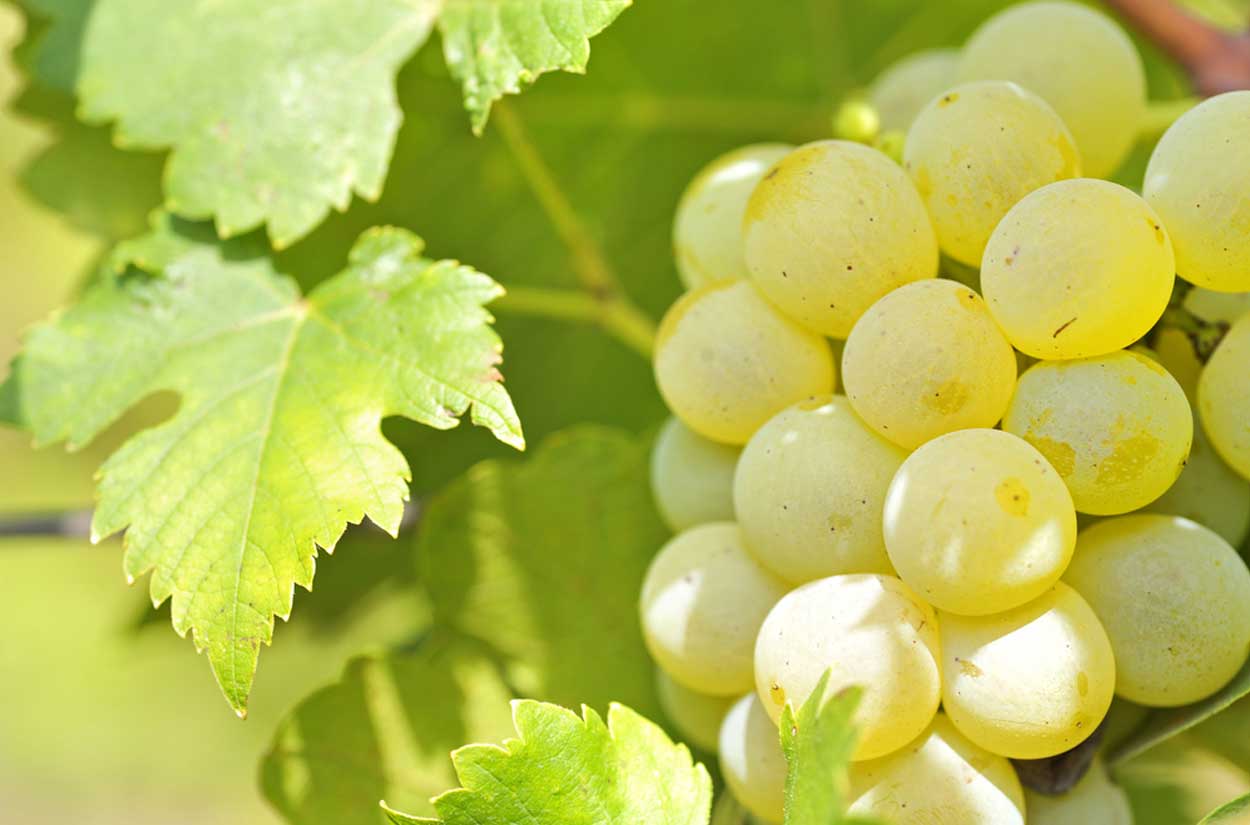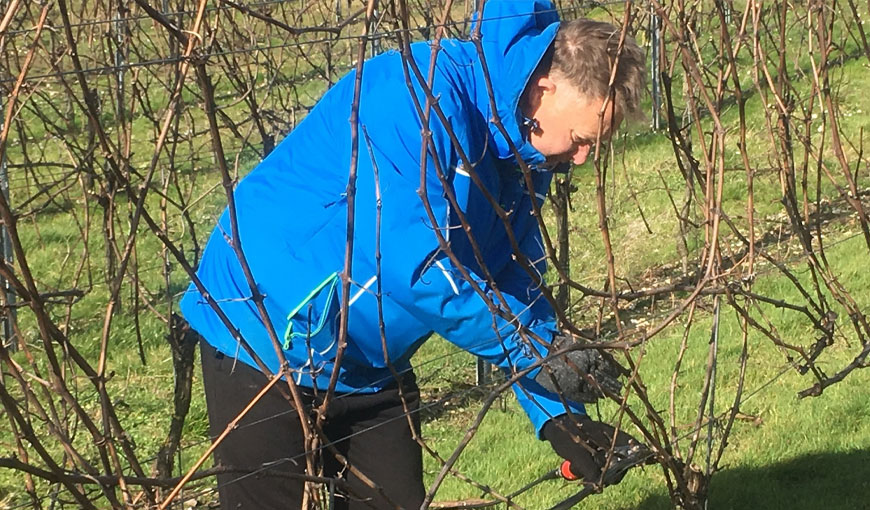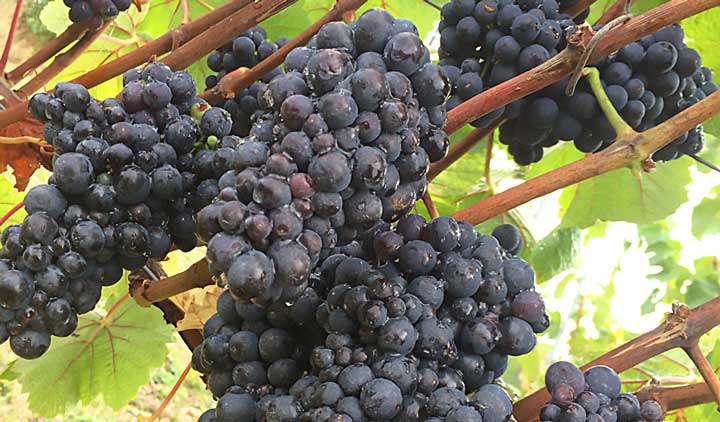On these chalk downs, which are similar to those around the Reims area of France, there is great potential for producing sparkling wines made using the traditional method.
We have chosen two champagne varieties, Chardonnay and Pinot Noir, which will enable us to produce sparkling wine using the traditional method. Our full grape selection also allows us to make sparkling rosé, still red wine and still white wine - given suitable weather and climate conditions.

The Chardonnay grape is the most widely planted in the world and has been particularly successful in south-east England. Its affinity for chalk soils makes it an obvious choice, especially when grown on rootstock resistant to chalk-based soils. Chardonnay is one of the main three varieties in traditional sparkling wines from the Epernay region, providing structure and finesse. It is the sole grape in Blanc de Blancs.
The Bacchus grape is a hardy variety that ripens early and is not demanding in the way of specifics for its planting site. It has become popular in cooler climates and is well suited to England. It’s wines are regarded as having a style similar to Sauvignon Blanc with fairly high acidity due to the cooler climate of England. It is becoming very popular for its aromatic and floral qualities.
This is a demanding, often frustrating variety but has become one of the traditional components of good sparkling wine in England, and in good ripening conditions has also been successful in making rose and red wines. The grape grows in small, tight bunches and performs particularly well on well-drained limestone-based soils. Because of the thinness of the skins, Pinot Noir wines are lighter in colour, body and tannins but have complexity and intensity of fruit seldom found in other red grapes.
Associated with the Grand Est region in eastern France where it produces richly honeyed dry whites as well as superb late-harvest wines. In Italy it is known as Pinot Grigio. It is a white wine grape often used as a blending component in sparkling wines. We also intend to use it as a wine in its own right.

